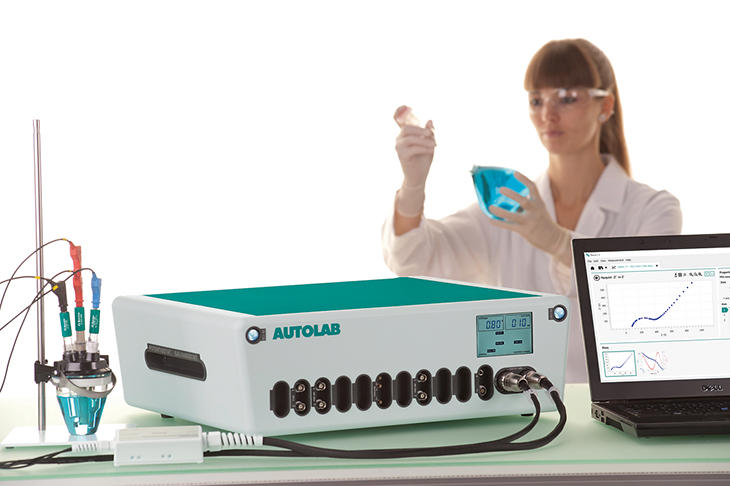
A potentiostat is an electronic device that is used to control the potential (or voltage) of an electrode in an electrochemical experiment. It is typically used in conjunction with a reference electrode and a counter electrode, and can be used to measure a variety of electrochemical properties, such as the corrosion rate of a metal or the activity of enzymes in a biological sample.
Potentiostats are commonly used in research labs, as well as in industrial applications, such as the monitoring of electroplating processes and the testing of batteries.
How does a potentiostat work
Potentiostats work by applying a controlled potential to the working electrode, while measuring the current flowing through the electrode.
This allows the user to study the electrochemical behavior of the system under investigation, as well as to control the potential of the electrode to maintain it at a certain level.

An electrode made to deliver current of a certain substance is present is called a sensor. This sensor has a certain sensitivity to the substance that you want to measure. For this reason, there are many different sensors that react in different ways to certain chemical substances.
Sometimes a sensor can be used multiple times, but often they are disposable, so for a one-time use, and the sensor is permanently changed by the reactions happening at the electrodes.
Single- of multichannel potentiostats
Potentiostats are available in a wide range of models, from simple, single-channel devices to advanced, multi-channel systems.
Some potentiostats are also equipped with additional features, such as the ability to perform cyclic voltammetry which is a technique used to study the electrochemical behavior of a system over a range of potentials.
Use of a potentiostat
Potentiostats are used in a wide range of fields, including materials science, chemistry, and biology. They are also used in industrial applications, such as the monitoring of electroplating processes and the testing of batteries.
Potentiostats are also commonly used in research labs to study the electrochemical behavior of materials, enzymes, and other systems.
Corrosion studies
It is also worth noting that Potentiostats are important tools in the field of corrosion science, where they are used to measure the corrosion rate of different materials and to study the mechanisms of corrosion.
In the field of electrochemistry, potentiostats are used to study the kinetics of electrochemical reactions, such as the rate at which a metal corrodes, the rate of hydrogen evolution, or the rate of electrodeposition of a metal.
Potentiostats are also used in the field of bioelectrochemistry, where they are used to study the activity of enzymes and other biological systems.
Potentiostats are also used in the development and testing of batteries, fuel cells, and other energy storage devices. They are used to study the charge-discharge cycles of these devices, as well as to study the electrochemical processes that occur during operation.
Summary
In summary, Potentiostat is a powerful and versatile electrochemical measurement instrument that is widely used in research and industrial applications.
It provides detailed information on the electrochemical properties of systems under investigation, and is an essential tool in fields such as materials science, chemistry, biology, corrosion science, and energy storage.
The range of applications of potentiostats is quite wide and constantly expanding as new research and technological developments are made in the field of electrochemistry.


